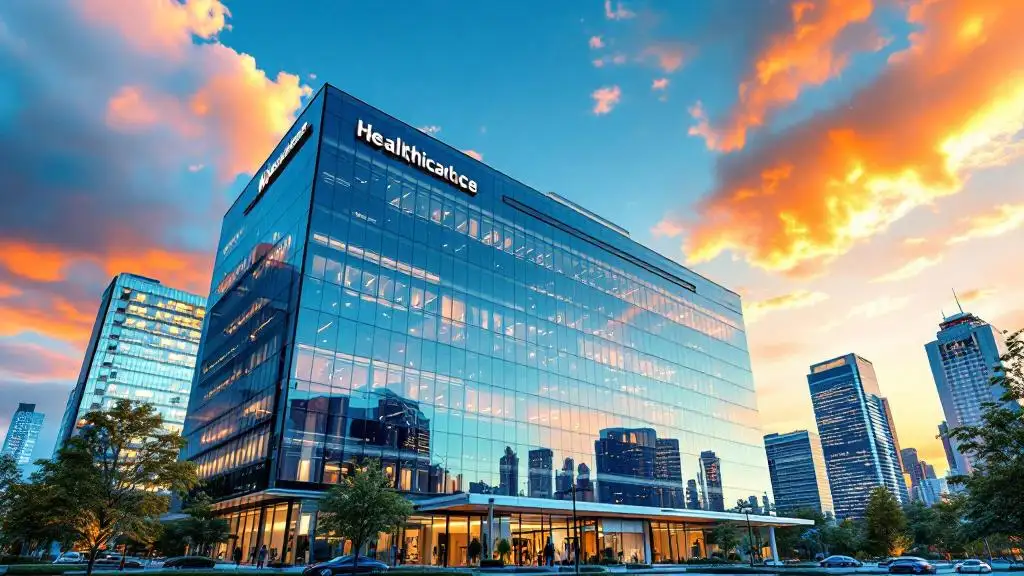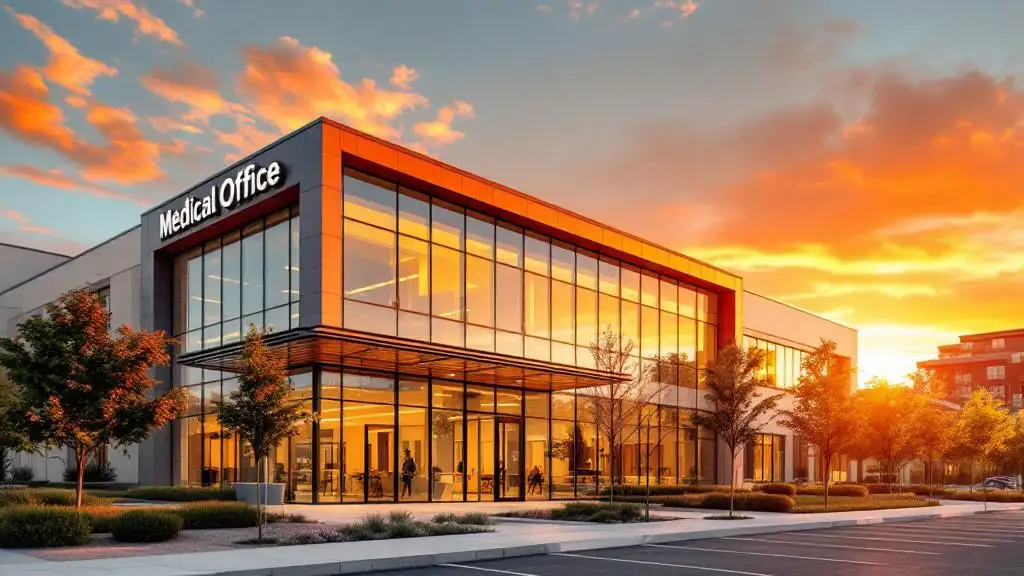SEO Strategies for Substance Abuse Treatment Centers
Maximizing Online Reach: Effective SEO Strategies for Rehab Facilities


SEO Strategies for Substance Abuse Treatment Centers
Transforming Visibility with Proven SEOTactics
In today’s digital-first landscape, substance abuse treatment centers must harness comprehensive SEO strategies to stand out in a competitive market. From optimizing local presence to crafting empathetic content, understanding and implementing effective SEO techniques can significantly increase online visibility, attract qualified leads, and ultimately help more individuals find the vital support they need. This article explores the multifaceted approach to SEO tailored specifically for rehab facilities, emphasizing ethical practices, technical excellence, and strategic content planning.
Understanding the Foundation of SEO in Addiction Treatment Advertising
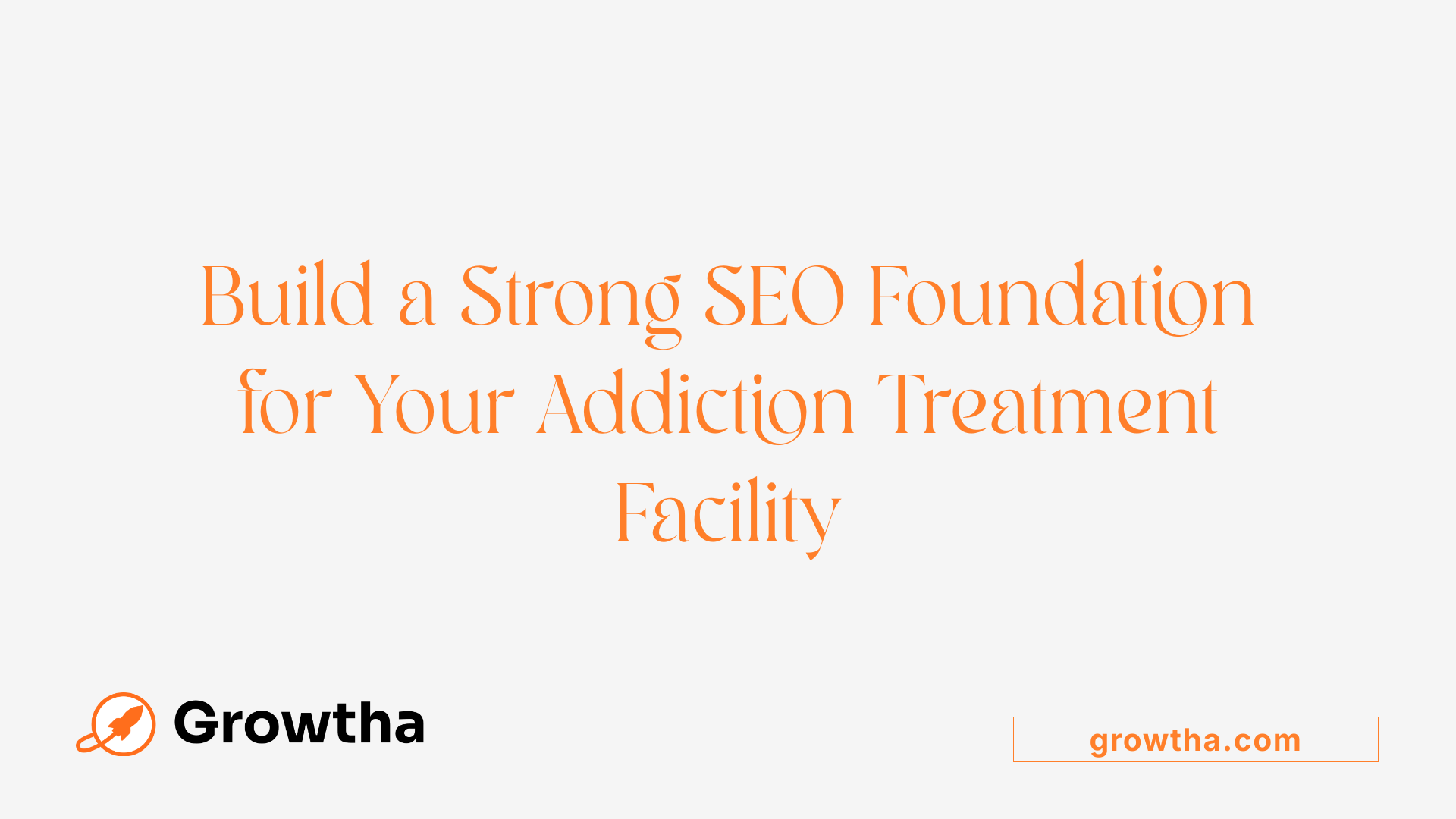
How do search engine rankings and visibility affect drug rehab centers?
Search engine rankings determine how prominently a rehab center appears when potential clients search for addiction treatment services online. Higher rankings generally lead to increased visibility, more website traffic, and ultimately, more patient inquiries. Since most individuals seeking help start with a Google search, appearing on the first page is crucial.
Effective SEO strategies improve a rehab’s position on search engine results pages (SERPs), making it easier for people to find their services quickly. This is especially important considering the high competition among treatment centers; being among the top results significantly elevates a center’s chances of attracting new clients.
Why are Google’s algorithms and ranking factors so important?
Google’s algorithms evaluate numerous elements to determine a site’s relevance and authority. Factors such as the quality of content, website structure, backlinks, and user experience influence how high a website ranks.
For addiction treatment centers, understanding these factors allows for the creation of targeted SEO tactics that align with Google’s preferences. For example, optimizing for mobile, ensuring fast load times, and providing informative, relevant content are integral practices. Staying updated with algorithm changes ensures your strategies remain effective and compliant.
How do high-quality backlinks and domain authority impact search rankings?
Backlinks from reputable websites serve as endorsements that signal trustworthiness and relevance to search engines. High-quality backlinks from healthcare or recovery industry sites increase a rehab center’s domain authority — a measure of overall website credibility.
A strong backlink profile not only boosts rankings but also enhances the website’s ability to rank for competitive keywords. Search engines view these links as votes of confidence, which can significantly elevate a center’s position in local and broader search results.
| SEO Technique | Description | Impact on Rankings | Additional Notes |
|---|---|---|---|
| Local SEO Optimization | Enhancing Google My Business profiles, maintaining NAP consistency | Improves local search visibility | Essential for attracting nearby clients |
| Content Marketing | Creating blogs, success stories, videos | Establishes authority | Engages visitors and improves relevance |
| Technical SEO | Improving website speed, mobile responsiveness | Enhances user experience | Vital for ranking and retention |
| Backlink Building | Securing reputable backlinks | Raises domain authority | Quality over quantity matters |
| Keyword Targeting | Using industry and location-specific keywords | Improves discoverability | Focus on long-tail keywords |
What SEO techniques can boost search engine rankings for rehab centers?
Implementing local SEO strategies is vital for addiction treatment centers. This includes optimizing Google Business profiles with accurate information, high-quality photos, and positive reviews. Consistent NAP (Name, Address, Phone Number) information across directories fosters trust and relevance.
Content optimization involves naturally integrating relevant keywords into titles, headers, and meta descriptions. Creating high-quality content—such as blog posts, informative articles, success stories, and engaging videos—helps establish authority and relevance.
Technical SEO is equally important. Ensuring fast website load times, mobile responsiveness, and an intuitive site structure improves user experience and search rankings.
Building backlinks from authoritative healthcare sites and recovery blogs further boosts credibility. Social media activity, while indirect, increases brand awareness and can generate referral traffic and backlink opportunities.
In sum, a holistic approach combining local SEO, content quality, technical excellence, and authority-building forms the foundation for climbing search engine rankings in the recovery industry.
The Critical Role of Local SEO for Substance Abuse Facilities
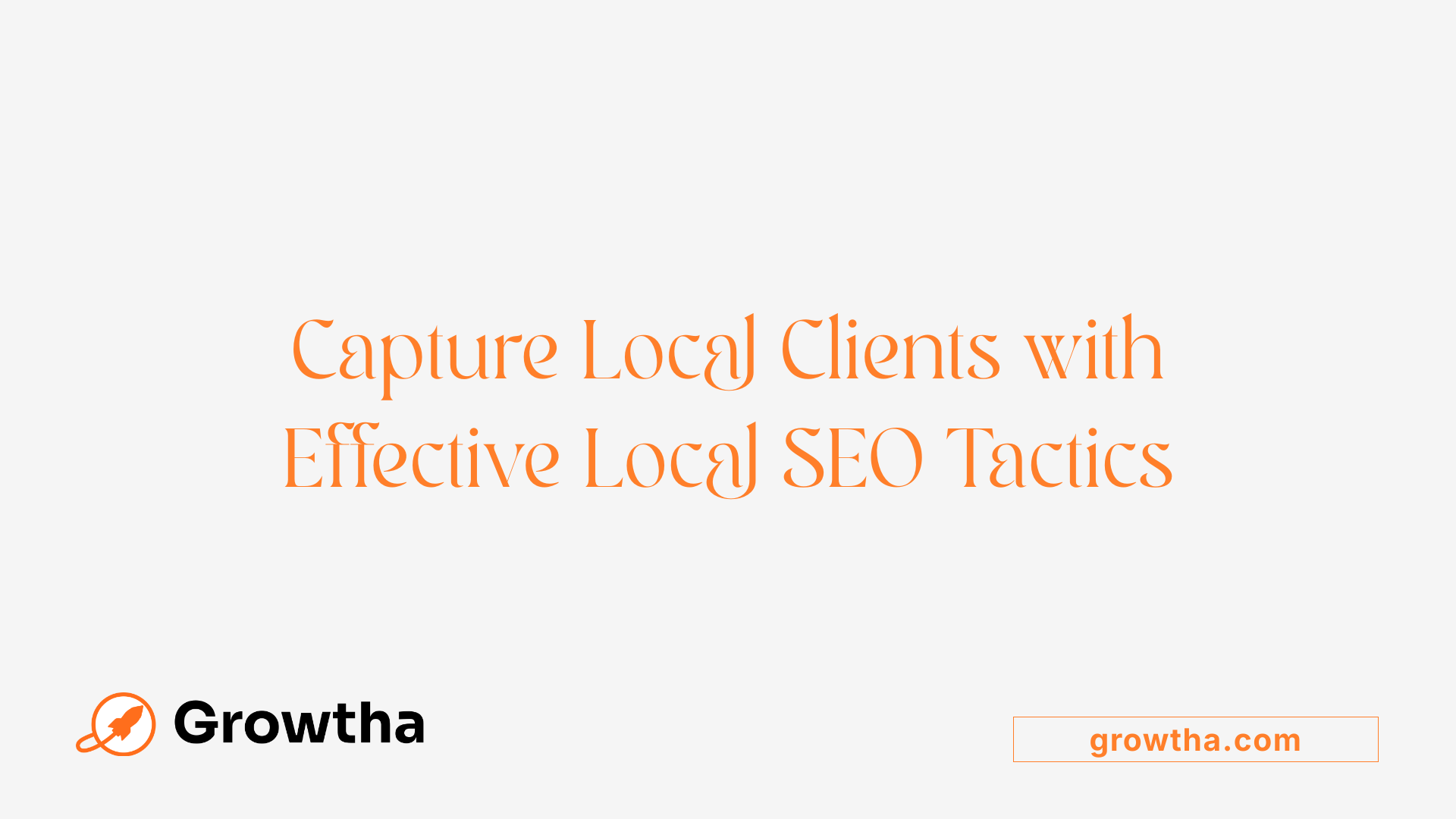
What role does local SEO play in attracting patients to addiction treatment centers?
Local SEO is essential for rehabilitation centers aiming to connect effectively with individuals seeking help nearby. It enhances online visibility by ensuring these facilities rank higher in local search results, Google Maps, and online directories. When someone searches for terms like "drug rehab near me" or "addiction treatment centers in [city]," optimized local SEO strategies help these centers appear prominently, guiding potential patients precisely when they need help.
Optimizing Google My Business (GMB) profiles is a fundamental step. This involves maintaining accurate, current information, adding high-quality photos, and encouraging positive reviews. Such practices increase the center’s prominence on local searches and maps, making it easier for new clients to find and trust them.
Maintaining NAP (Name, Address, Phone Number) consistency across all online platforms builds authority and improves search engine rankings. Consistent contact details and citations in local directories tell search engines that the business is credible and active, which helps it stand out against competitors.
Including localized keywords and geo-targeted content further refines search relevance. Content tailored with geographic-specific phrases like "substance abuse treatment in [region]" or "dual diagnosis centers in [city]" aligns with what local searchers are looking for. Embedding Google Maps and local keywords on the website enhances visibility to users searching within the vicinity.
In addition to keyword tactics, community engagement through localized content and active involvement in local online communities reinforces the facility’s local presence. Publishing success stories, local event participation, or partnerships with nearby healthcare providers increases trustworthiness.
Building a positive reputation through reviews and acquiring authoritative backlinks from reputable local sources signals relevance to search engines. These backlinks, combined with local citations, boost the website’s authority, helping it rank higher.
Overall, implementing effective local SEO strategies ensures that treatment centers are visible to those in need within their specific service areas. This targeted approach facilitates quicker access to care, making a profound difference in individuals’ lives while establishing a solid online presence in a competitive field.
Content Optimization and Its Impact on Search Rankings
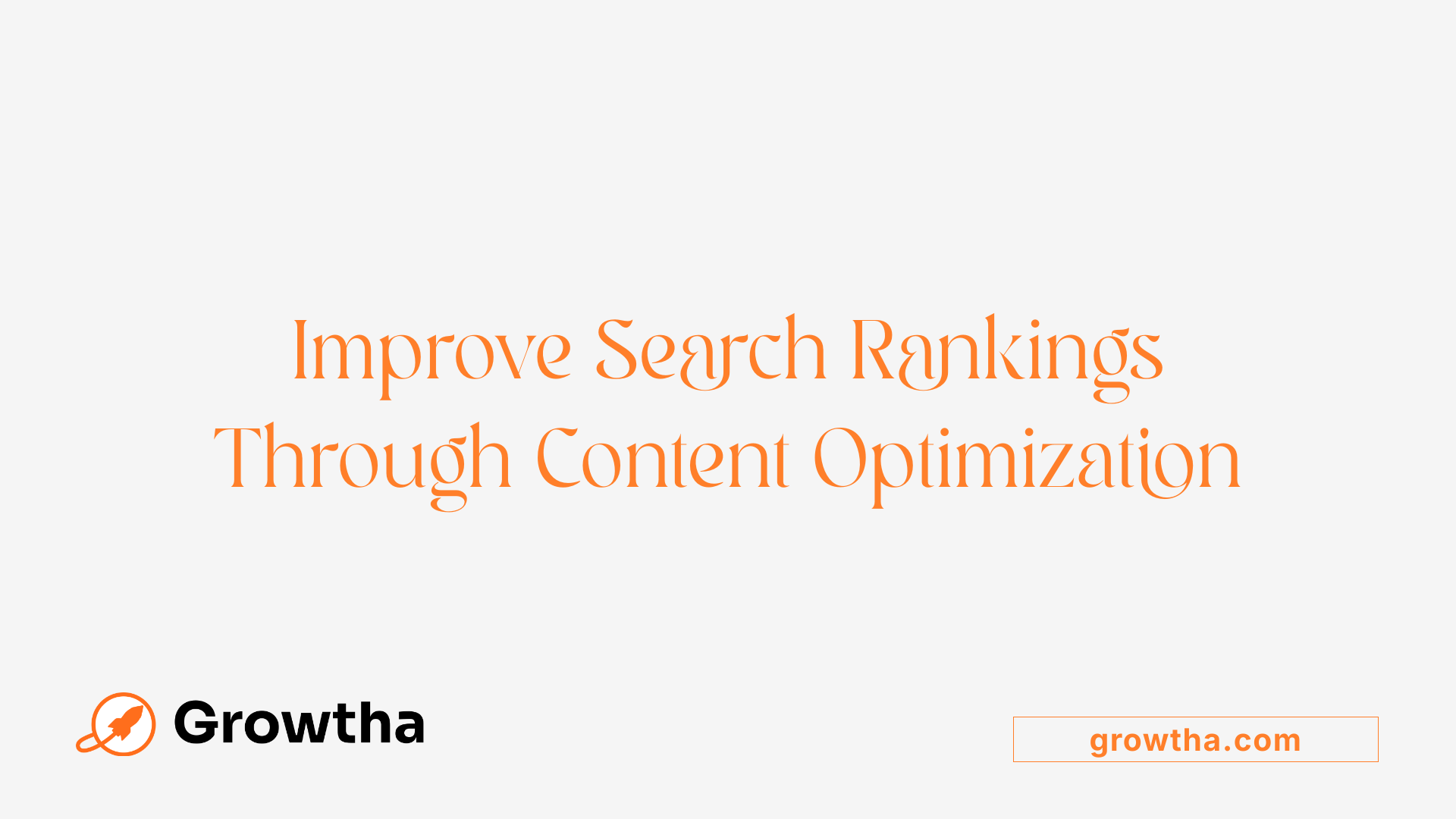
How does content creation impact SEO for rehab services?
Content creation plays a crucial role in enhancing search engine optimization (SEO) for addiction treatment centers. Well-developed, high-quality content not only attracts potential clients but also signals to search engines that the website is relevant and authoritative. When rehab centers publish informative blog posts, detailed guides, FAQs, personalized success stories, videos, and infographics, they provide valuable information that addresses the concerns and questions of their audience.
Consistent content updates keep the website fresh and relevant, encouraging search engines to rank the site higher. This approach helps the facility appear prominently in search results when individuals look for specific treatment options or local rehab centers. Furthermore, diverse content formats cater to different user preferences, increasing engagement and time spent on the site.
Strategically incorporating keywords naturally within titles, headers, meta descriptions, and throughout the body content improves the relevance of each page for targeted search queries. This makes it easier for Google and other search engines to understand the page content, helping to boost visibility for relevant search terms.
Another significant aspect of content creation is storytelling that resonates emotionally with potential patients. Sharing empathetic stories of recovery and personal journeys builds trust and humanizes the rehab center. This emotional connection can motivate individuals to seek help, reducing stigma and offering hope.
By addressing common questions and misconceptions about addiction treatment, content can guide visitors through the decision-making process. For example, providing clear explanations about treatment methods, insurance coverage, and what to expect can help alleviate fears and uncertainties.
Effective SEO also involves combining strategic keyword use with a compassionate tone that demonstrates understanding and authority. This approach not only improves rankings but also enhances the overall user experience, encouraging inquiries and conversions.
Investing in content marketing strategies—creating blogs, guides, videos, and success stories—builds your facility's reputation as a trusted resource in addiction recovery. Over time, this content-driven strategy results in increased organic traffic, higher search engine rankings, and ultimately, more patients seeking help at your rehab center.
How does content creation impact SEO for rehab services?
Content creation significantly enhances SEO for rehab services by providing high-quality, relevant information that helps improve search engine rankings and increases visibility. Developing diverse content formats such as blogs, guides, FAQs, testimonials, videos, and infographics not only attracts and engages prospective patients but also positions the facility as an authoritative and trustworthy source. Regularly publishing problem-solving and empathetic content can differentiate a rehab center from competitors, build trust, and reduce stigma surrounding addiction. Additionally, strategic content marketing influences patient behavior, encourages inquiries, and can lead to measurable results like increased website traffic and higher search rankings. Overall, consistent, well-crafted content tailored to the needs of the target audience is a vital component of effective SEO for rehab services.
To maximize SEO benefits, content should target industry-specific long-tail keywords related to local treatment options and particular substances. Incorporating these keywords naturally into page titles, headers, meta descriptions, and within the content helps search engines understand and index the site effectively. Especially for local SEO, mentioning geographic locations and local keywords optimizes the site for community-specific searches.
Regular updates with high-quality, authoritative content—such as success stories, expert articles, and videos—enhance credibility and encourage backlinks from reputable healthcare and recovery websites. These backlinks improve domain authority, which positively impacts search rankings.
Involving emotional storytelling and addressing patient concerns fosters trust and engagement. When content resonates emotionally, it increases the likelihood that visitors will convert into inquiries or appointments.
Effective content marketing also leverages social media platforms for sharing stories and educational materials, expanding reach and driving traffic back to the website. This indirect SEO support is vital for building a strong online presence.
In summary, content creation acts as a cornerstone of SEO strategies for rehab centers, combining technical optimization with authoritative, empathetic storytelling to attract and convert prospective patients, ultimately fostering sustained growth.
Technical SEO: Enhancing Site Usability and Performance

What are some effective SEO strategies for substance abuse treatment centers?
Effective SEO practices for substance abuse treatment centers focus on creating a website that is easy to find, relevant, and trustworthy. Initially, thorough keyword research helps identify the specific treatment options and local terms potential clients are searching for. Incorporating these keywords naturally into website content, titles, headers, and meta descriptions improves visibility.
A significant aspect of SEO is technical optimization, which ensures the website runs smoothly and provides a positive user experience. Improving website speed is essential because slow-loading sites frustrate users and reduce rankings. Techniques include compressing images, leveraging browser caching, and minimizing code to ensure fast load times.
Mobile responsiveness is equally vital. Since many users browse on smartphones or tablets, the site must adapt to various screen sizes, ensuring easy navigation and readability. A mobile-friendly design reduces bounce rates and helps the site rank higher on search engines.
Security is another crucial factor. Implementing HTTPS encrypts user data, building trust with visitors and meeting Google’s security standards. Incorporating schema markup helps search engines understand the website’s content better, potentially resulting in rich snippets that increase click-through rates.
Local SEO strategies are vital for rehab centers to attract nearby patients. This includes optimizing the Google My Business profile with accurate information, photos, and positive reviews. Consistent NAP (Name, Address, Phone Number) details across all online directories reinforce local relevance.
High-quality backlinks from reputable healthcare and recovery websites boost the site's authority. Content marketing such as blogs, success stories, and videos further elevate credibility, providing valuable information and engagement.
Off-site SEO activities include engaging on social media platforms and building relationships with industry bloggers, which can generate referral traffic and backlinks.
In summary, the most effective strategies combine comprehensive keyword research, strong local SEO practices, technical site improvements, and quality content creation. These elements work together to improve search rankings, increase visibility, and attract more patients seeking addiction treatment services.
| SEO Strategy | Importance | Details |
|---|---|---|
| Keyword Research | Foundation for visibility | Identifies treatment and location-specific terms |
| Content Optimization | Relevance and discoverability | Keywords in titles, headers, meta descriptions |
| Site Speed Enhancement | User experience and rankings | Image compression, caching, minimal code |
| Mobile Responsiveness | Accessibility on all devices | Responsive design, testing across devices |
| Secure Protocols (HTTPS) | Trust and security | SSL certificates, encryption |
| Schema Markup | Better indexing and rich snippets | Structured data for content clarity |
| Local SEO | Attract nearby clients | Google My Business, local keywords, citations |
| Backlink Building | Authority and credibility | Reputable healthcare site links |
| Content Marketing | Authority and engagement | Blogs, success stories, videos |
| Social Media Integration | Brand awareness and traffic | Sharing content, engaging audiences |
How SEO can directly impact a rehab center's growth
By implementing these structured strategies, drug rehab centers increase their online visibility, leading to higher website traffic and more inquiries. Appearing in top search results makes it easier for potential clients to find and trust the center, ultimately translating into more admissions and successful treatment outcomes. Continuous monitoring and updating of the SEO efforts ensure the website remains optimized amidst evolving search engine algorithms, maintaining a competitive edge in the addiction treatment industry.
Off-Page SEO and Link Building Strategies

What off-page SEO techniques can benefit substance abuse treatment centers?
Off-page SEO involves activities conducted outside of a website to improve its search engine rankings. For drug rehab centers, effective off-page strategies are essential to increase online authority and attract more local clients.
High-quality backlinks play a crucial role in this process. These are links from reputable healthcare or recovery-related websites that signal trustworthiness to search engines. Earning these links involves outreach efforts, forging relationships with recovery bloggers, health organizations, and industry experts.
Another important tactic is listing the rehab center on relevant directories such as Yelp!, Yellow Pages, and specialized health directories. Ensuring consistent NAP (Name, Address, Phone Number) information across all listings helps boost local SEO.
Reputation management is also vital. Encouraging satisfied patients to leave positive reviews can enhance credibility, influence rankings, and attract new clients. Responding to reviews shows engagement and commitment to patient satisfaction.
Social media platforms are valuable tools for sharing informative content like success stories, videos, and blogs. They help increase brand awareness and generate referral traffic. Sharing content on Facebook, Instagram, or Twitter also opens opportunities for backlinks.
Building relationships with authoritative websites within the healthcare industry can lead to guest posting opportunities and backlinks. This increases site authority and visibility.
Regularly monitoring these efforts through analytics helps center managers understand what’s working and optimize their strategies.
Summary of Off-Page SEO Techniques for Rehab Centers:
| Technique | Purpose | Best Practice |
|---|---|---|
| High-quality backlinks | Increase domain authority | Outreach, guest posting, collaborations |
| Directory listings | Improve local search visibility | Accurate NAP info, reviews |
| Review cultivation | Build trust and reputation | Encourage reviews, respond professionally |
| Social media engagement | Enhance brand awareness | Share valuable, shareable content |
| Industry relationships | Earn authoritative links | Networking with healthcare sites |
How can outreach to recovery bloggers and health organizations improve off-page SEO?
Establishing relationships with recovery bloggers and health organizations can lead to valuable backlinks and content collaborations. Guest blogging on popular recovery blogs, participating in industry webinars, and sharing expert insights help showcase expertise.
These efforts not only increase backlinks but also position the rehab facility as an authority in addiction treatment. This peer recognition encourages referrals and trust among potential clients.
Why are directory listings and citations important?
Listings on reputable directories add credibility and improve local SEO. Accurate NAP details ensure consistent citations, which search engines use to confirm a business’s legitimacy.
Inclusion in industry-specific directories further enhances visibility among people searching for nearby treatment centers. It also nurtures trust and improves chances of appearing in local map packs.
How does reputation management and reviews impact SEO?
Positive reviews boost a center’s local search rankings and influence potential clients’ decisions. Responding to reviews shows engagement and helps manage the center’s reputation.
Encouraging satisfied patients to share their experiences on Google, Yelp!, or Facebook builds social proof. Over time, this active review profile signals trustworthiness, encouraging higher rankings and more inquiries.
In conclusion, combining these off-page strategies creates a robust online presence that complements on-page SEO efforts, leading to increased visibility and patient engagement.
The Power of Content Marketing and Patient Engagement

How can rehab facilities improve their online visibility?
Rehab centers can greatly enhance their online presence through effective content marketing and active patient engagement. Creating compelling success stories and patient testimonials not only builds credibility but also offers hope to others seeking help. Videos showcasing virtual tours of the facility and testimonials help personalize the experience, making it more relatable and trustworthy.
Regularly updated educational blogs and FAQs can inform potential clients about addiction, treatment options, and recovery processes. This position the rehab center as an authority in the field, encouraging higher search engine rankings. Utilizing SEO-friendly keywords naturally within this content allows the website to appear more prominently in search results.
Building trust and reducing stigma are vital. Sharing informative content that humanizes addiction and highlights recovery stories fosters empathy and connection. Engagement can be further strengthened by maintaining an active presence on social media, where success stories, mental health tips, and live Q&A sessions can be shared to connect with the community.
Incorporating multimedia elements like infographics, memes, and animated graphics captures attention and makes complex information more digestible. Clear calls-to-action embedded throughout content guide visitors toward making contact or scheduling evaluations.
Adding to these efforts, rehab centers should optimize their website structures, ensure mobile responsiveness, and leverage local SEO strategies, such as accurate Google My Business listings and local keyword targeting. Such integrated approaches significantly improve visibility and attract qualified leads.
Furthermore, building high-quality backlinks from reputable healthcare and recovery industry sites boosts site authority, while listing in relevant directories enhances local search presence. Combining these strategies with ongoing monitoring using tools like Google Search Console and Google Analytics ensures the effectiveness of SEO efforts and allows continuous optimization.
Overall, a well-rounded content marketing plan focusing on patient stories, educational materials, and community engagement can transform a rehab center's online footprint, making it easier for those in need to find crucial help during their recovery journey.
Navigating Ethical and Regulatory Considerations in SEO

What ethical considerations and metrics are important for SEO in the addiction industry?
Implementing SEO strategies for addiction treatment centers requires careful attention to ethical standards and regulatory guidelines. First and foremost, maintaining patient privacy and confidentiality is paramount. This means ensuring that any testimonials, case studies, or success stories shared on websites or social media are anonymized unless explicit consent has been obtained, adhering to confidentiality laws such as HIPAA.
Providing accurate, evidence-based content is also essential. Reputable centers should avoid exaggerating outcomes or making unsubstantiated claims. Content must be transparent about treatment options, success rates, costs, and potential risks to foster trust and help prospective patients make informed decisions. This transparency extends to disclosing affiliations, certifications, and licensing information.
Marketing practices should underscore honesty and avoid manipulative tactics like keyword stuffing or misleading emotional appeals. Using white-hat SEO techniques—such as relevant keyword integration, high-quality backlinks, and user-focused content aligned with authoritative guidelines—ensures sustainable, ethical growth.
Metrics for success and compliance include monitoring organic traffic, user engagement, andconversion rates. These indicators reveal whether SEO efforts effectively connect people seeking help while upholding ethical standards. Additionally, regular audits can check for adherence to confidentiality policies and the accuracy of information presented.
Building trust through credible content, such as educational articles, infographics, and testimonials with verified permissions, emphasizes a center’s commitment to patient well-being. Highlighting credentials, affiliations with reputable organizations like ASAM or SAMHSA, and sharing success stories responsibly demonstrate transparency and legitimacy.
Furthermore, respecting cultural diversity and avoiding stigmatizing language are important ethical considerations. Content should be compassionate and supportive, aiming to reduce stigma around addiction rather than perpetuating stereotypes.
Finally, tracking both quantitative data (like website traffic and conversions) and qualitative feedback (such as patient inquiries or reviews) helps centers align their SEO strategies with core values of integrity, empathy, and support. These practices not only enhance online visibility but also reinforce a reputation centered on trust and ethical responsibility.
In summary, SEO in the addiction treatment industry must balance effective marketing with unwavering ethical principles. Doing so ensures that efforts to grow online presence do not compromise patient rights, honesty, or the quality of care—and ultimately supports individuals seeking meaningful recovery.
Implementing Sustainability in SEO Efforts
Achieving sustainable success in SEO for substance abuse treatment centers requires ongoing efforts—regular website audits, performance monitoring, and adapting to changing search engine algorithms are essential. An ethical, patient-centric approach not only builds long-term trust with prospective clients but also aligns marketing practices with industry standards and legal guidelines. By continuously refining keyword strategies, enhancing website usability, engaging authentically with the community, and maintaining high-quality content, rehab facilities can secure a prominent online presence that genuinely supports their mission of recovery and hope. Sustained focus on local SEO, technical excellence, and ethical marketing will ensure that these vital services reach the individuals who need them most, fostering growth and impactful community service.
References
- Why SEO is Crucial for Drug Rehab Centers - Faebl Studios
- SEO & Content Marketing for Rehab Centers
- Addiction Treatment SEO | Drug Rehab SEO Campaign Strategy
- Trusted Drug Rehab SEO | Addiction Treatment SEO - MGMT Digital
- 10 Effective Drug Rehab SEO Strategies for 2024 | by Matt Ramage
- Drug Rehab SEO for Rehabilitation Facilities - elk marketing
- SEO For Addiction Treatment - Sagapixel SEO
- Driving Local SEO for Rehab Centers - Ads Up Marketing
- The Connection Between SEO and Addiction Treatment
- Why SEO is Crucial for Drug Rehab Centers - Faebl Studios


